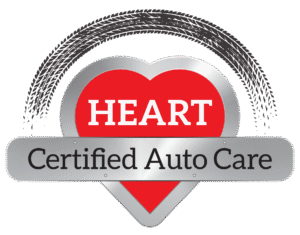Winter Car Care Tips
The end of summer means more than packing away swimsuits and gardening tools. It also means preparing your car for winter. To help you, here are nine tips for end of summer car maintenance.
Refill your tires
Not only does winter bring hazardous driving conditions, but cold weather also reduces tire pressure. Tire pressure is essential for maintaining safe traction and handling on the road. Stay safe this winter by making sure your tires are properly inflated. This provides more than peace of mind and car safety; it improves fuel efficiency, saving you gas money.
Check your tire tread
Along the same lines, inspect your tire tread. An inspection can be done easily with a penny: if you insert a penny into the tire tread head first, and you can still see Lincoln’s forehead, it’s time to replace your tires.
Replace your windshield wipers
Windshield wiper blades should be replaced every six months, and definitely at the end of the summer, in preparation for winter conditions. Replacing windshield wipers is especially important if you live in colder climates where snow, ice, and salt greatly decrease visibility. If you need advice on which windshield wiper blade’s best for you, stop by one of HEART Certified Auto Care shops located in Northbrook, Wilmette, or Evanston.
Check your headlights
Summer’s over. That means the days will be getting shorter, meaning you need to make sure your headlights and turn signals are both working properly and are bright enough. Test them all in your driveway or in a parking lot. If your headlights are dim, dirty, or burned out, call one of HEART’s car repair professionals for a replacement or inspection.
Restock your car’s emergency kit
Every car should have an emergency roadside kit that includes first aid supplies, water, snacks, blankets, road flairs, a phone charger, and other supplies you may need if you find yourself stranded. Use the end of summer car maintenance to make sure your car’s emergency kit is fully stocked. If you don’t do it now, you may regret it later.
Check your battery
The summer heat can evaporate your battery’s fluid, draining your car’s battery power. While most batteries last up to five years, it’s best to test yours every six months, at least. Batteries should operate at a minimum of 12.6 V, but ideally between 13.7-14.7 V. If you need further assistance, call or stop by one of HEART’s three Chicago area locations: HEART Northbrook, HEART Evanston, or HEART Wilmette.
It’s time for an oil change
As with the battery, summer heat can degrade your car’s engine oil. The temperature fluctuation can thin its consistency, making it less effective. That’s why you should always perform an oil change at the end of the summer. If you need help, stop by a HEART Certified Auto Care location near you.
Check your car’s coolant
Your AC and other cooling systems worked overtime during the summer. With the season over, it’s time to make sure your engine’s coolant is filled and running properly. If it’s been more than five years since you last flushed your car’s coolant, bring it in to your local car repair shop to do so. It’s recommended every five years or 30,000 miles, whichever comes first.
Check your car’s heater and defroster
These two functions are a must in the winter. Test your car heater and car defroster before winter hits to make sure you stay warm and safe getting where you’re going this winter. For more end of summer car care tips and expert car service you can trust, call or visit HEART Northbrook, HEART Wilmette, or HEART Evanston. We don’t just restore your car; we restore your faith in auto service.




